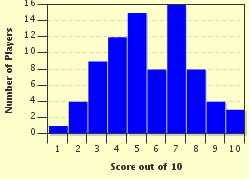Quiz Answer Key and Fun Facts
1. In many religions, the term "paradise" denotes a place of everlasting joy and peace for the souls of the virtuous dead. What was the rather exclusive, original meaning of this word?
2. According to the "Book of the Dead", the Ancient Egyptians' version of heaven was called Sekhet-Aaru, meaning "the reed fields". Who was the deity who reigned there?
3. The Ancient Greeks had their own concept of paradise, a place of plenty and perfect harmony where the souls of the righteous would spend eternity enjoying their favourite pursuits. By which of the following names was this place NOT known?
4. What do the heavenly realm of Asgard in Old Norse religion and a sweet modern belief in an afterlife for beloved pets have in common?
5. In medieval Christian belief, as illustrated in Dante's "Divine Comedy", Heaven consisted of how many concentric spheres?
6. In Hinduism, as in other Eastern religions, the concept of heaven is quite different from the Western one, being about freedom from the cycle of reincarnation. What is the word for this state of self-realization and oneness with the gods?
7. The Islamic view of Paradise involves physical, as well as spiritual, pleasures: the souls of the virtuous will be able to wear sumptuous attire, partake of delicious food and drink, and enjoy the company of their family and friends in idyllic surroundings.
8. What is the name given to the spirits worshiped in the Japanese religion of Shinto, which also include the spirits of ancestors and revered dead?
9. The Rastafarian religion of Jamaica is known mostly for its use of marijuana and the distinctive dreadlocks worn by its adherents. However, Rastafarians also believe in a form of afterlife - called Life Everliving - which the righteous will enjoy in which part of the world?
10. How do Wiccans and some other contemporary pagan religions call their concept of the afterlife? (Think seasons)
Source: Author
LadyNym
This quiz was reviewed by FunTrivia editor
looney_tunes before going online.
Any errors found in FunTrivia content are routinely corrected through our feedback system.

